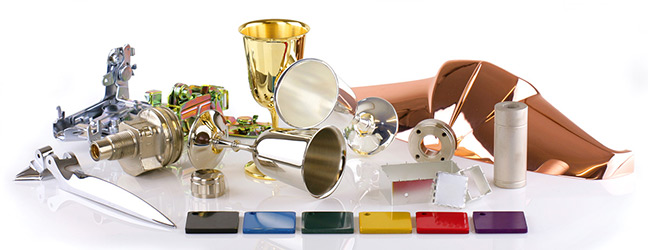4 Of The Most Conductive Metal Coatings Available
When it comes to metals and their purposes, conductivity is always an important factor. There are many different known terms for conductivity including thermal and electrical. Electrical conductivity is the material’s ability to pass a flow of electrical current, whereas thermal conductivity is a material’s ability to transfer heat. The majority of metals will conduct electricity and heat to some degree.
When choosing the right metal coating, such as zinc electroplating, it is crucial to consider the conductivity. Some metals are more conductive than others and will be more suitable for certain applications. This comes down to the type of product that needs coating and its unique requirements. An electroplating company will be able to provide assistance if you are unsure of which is best.
What are four of the most conductive metal coatings?
The functional success of a product or component will be largely affected by whether you have chosen the right metal. With each metal having its own specific properties, knowing which to choose can be tricky. Take a look below at some electroplating examples for the most conductive metal coatings.
Silver
Known as the most conductive metal, silver conducts both electricity and heat without difficulty. It provides great optical reflectivity and low wear resistance. This makes silver electroplating ideal for mirrors, conductors in telecom applications, and coating contacts. Silver coatings tend to tarnish more easily than gold or copper. Because of this, silver electroplating is only suitable for specific applications.
Gold
Gold has a high level of conductivity and provides great corrosion and wear resistance. Its superior resistance is why gold plating is used on less resistive metals like silver. Gold improves the wear and tear as well as the physical appearance of products. Gold electroplating examples include jewellery printed circuits, and semiconductors. Although gold electroplating is more expensive, it offers some of the best benefits for components that need conductivity.
Copper
Copper is another metal classed as highly conductive. Although it has a similar electron composition to silver, copper offers better corrosion resistance. Many industries use copper plating services because of the metals’ electrical and thermal properties. As well as this, copper electroplating also enhances the performance of plain components like plastic.
Zinc
Zinc is much less conductive than gold, copper, and silver. However, it still provides good conductivity. Zinc electroplating is widely used as it is seen as a more cost-effective alternative. It is cheaper than more expensive conductive metals and also offers great durability. Zinc electroplating is a great solution for preventing metals like steel and iron from rust.
As well as the four metals listed above, nickel and platinum are also considered as some of the most conductive metals.
As an electroplating company, we can provide you with recommendations for suitable conductive metal coatings. At Dorsetware, we offer metal finishing services in Dorset, Hampshire, Wiltshire, Devon and the M3 corridor for a broad range of metal types. These include zinc electroplating, silver, gold, and copper plating services as mentioned above. For more information, you can contact us by submitting an enquiry form or calling 01202 677 939.
Please note, we are experiencing high demand and may take up to 5 working days to respond to your enquiry. We appreciate your patience.


